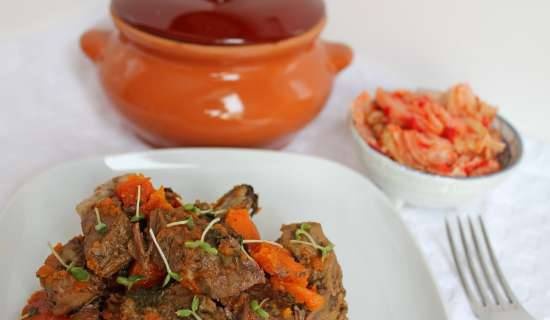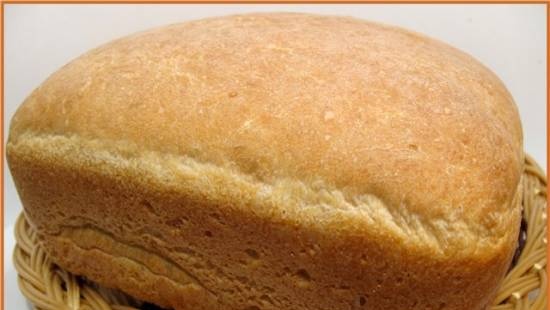|
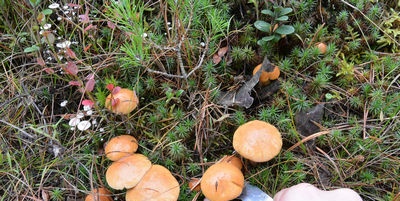 For many centuries people have been studying the flora around them, and there is no end in sight to discoveries. The subjects of their search are the resources of food, energy, meeting the needs of health care, home improvement, the development of many types of industry, etc. For many centuries people have been studying the flora around them, and there is no end in sight to discoveries. The subjects of their search are the resources of food, energy, meeting the needs of health care, home improvement, the development of many types of industry, etc.
The so-called "wilderness" once knew how to speak to our ancestor in a language he could understand, and he treated her with great respect. Still would! She fed, watered, dressed and put on shoes, warmed, cured ailments, provided shelter and utensils, and also delighted the heart with untold beauty. To the question: can the forest feed a person today? - the answer is still yes. (And this despite the enormous damage suffered by the "wild nature" from unreasonable interventions in her life.)
In the midst of the Great Patriotic War, a curious pocket book "Sputnik of the Partisan" was published in mass circulation, in which, in addition to combat instructions, information was given on how to saturate and survive not only in the summer, but also in the winter forest. It is not known how many people this book saved their lives, but, apparently, the benefit from it was considerable, because it gave specific "recipes", tested in practice and recommended by experts. But a person can find himself in an extreme situation without any such knowledge, so to speak, one on one with the "wild nature", which has happened many times. Even now we often learn from the press about the "Robinsons of the 20th century", who, by the will of fate, came to her "on full support." Such people at first experience horror, despair, but then they pull themselves together and begin to look around, think, study their surroundings, remember long forgotten, heard somewhere or read by chance, they seem to "see clearly." It is amazing that even a child who has nothing to remember, having lost his way in the forest, by some instinct finds something to feed him and support his strength with.
However, all these are exceptions, because without knowledge and skills to the gifts of "wild nature" it is dangerous to approach. Plants that look harmless and taste good can be poisonous. It also happens the other way around: with disdain we pass by a plain grass, a thorny or scalding leaf, a bitter berry, a wrinkled, ugly root, not suspecting that all this is the dream of an experienced cook.
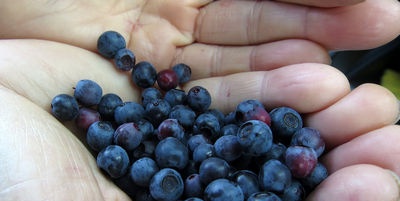 The flora is abundant and generous. Let us recall how in the war and post-war years of famine, millions of people were largely fed by the gifts of the forest. The elderly people of those unforgettable years were in their families in a special honor. Especially grandmothers. Because they had a lot of experience, their own, taken from a difficult youth and gleaned from their parents, how to make food out of nothing. It was accumulated by ancestors during the evil times of crop failures and crop failures, wars and devastation, irresponsible political experiments. Out of nowhere on the family table appeared dishes that had never been seen by young people, but quite edible and even delicious, aromatic, nutritious. In the winter months, in the entryway, in the attics, dried bunches of some herbs, garlands dry mushrooms... In the cellars, some previously unknown food was languishing in tubs, and the roots of plants sticking out of boxes with sand, the names of which the youth had never heard of. It was grandmother's kingdom-state, the wealth of which she generously endowed family members. The flora is abundant and generous. Let us recall how in the war and post-war years of famine, millions of people were largely fed by the gifts of the forest. The elderly people of those unforgettable years were in their families in a special honor. Especially grandmothers. Because they had a lot of experience, their own, taken from a difficult youth and gleaned from their parents, how to make food out of nothing. It was accumulated by ancestors during the evil times of crop failures and crop failures, wars and devastation, irresponsible political experiments. Out of nowhere on the family table appeared dishes that had never been seen by young people, but quite edible and even delicious, aromatic, nutritious. In the winter months, in the entryway, in the attics, dried bunches of some herbs, garlands dry mushrooms... In the cellars, some previously unknown food was languishing in tubs, and the roots of plants sticking out of boxes with sand, the names of which the youth had never heard of. It was grandmother's kingdom-state, the wealth of which she generously endowed family members.
Well, and grandfathers, what was their respect for? And at least for the fact that no one knew better than them where, when and what to pick mushrooms. So you will kill your legs for a whole day of "quiet hunting" and barely pick up a basket (and then you will have to throw half away), and your grandfather will collect two buckets in half a day, but what are the best ones. Good mushroom pickers do not suddenly become. If you've been shown which ones to take, or you've read about it in picture books, that's not all. Experience in such a business comes over the years.Old mushroom pickers know the "habits" of dozens of edible mushrooms, but how many of their species can you distinguish? As they say, one, two and miscalculated. So it turns out that in season amateurs go to the forest in herds, return with almost nothing, and unidentified edible delicacies remain there to rot in the bud.
But if only modern invasions of forests were limited to a harmless walk! Alas, here and there we meet traces of the robber of the "green pantry". Even the device (a special scoop), which he uses to collect blueberries, lingonberries and cranberries, is aptly nicknamed by the people a "grabber" (it allows you to rob the entire bush in no time, but at the same time cripples it mercilessly). Gathering mushrooms, he does not cut them carefully at the root, does not “twist” them carefully by the base of the legs, as our grandfathers and grandmothers did, but drags, tears them by the roots, destroying the mycelium, which after that will not give a good harvest. Getting to the nuts and fruits, to the flowers of lilac and bird cherry, he breaks out whole branches and peels the skin from a living tree. Tree, bush, grass - they do not scream in pain just because they cannot scream. They suffer in silence, get sick and die.
Just think, during the war the forest fed millions of people and there was enough for everyone. The current 50-60-year-old people must have not forgotten that their lips and fingers were then always stained with blueberry juice, but now you rarely see her in the bazaar, but you will find her eyes popping out from the price of a glass. The same thing happened with other berries.
And it happened in the green temple already in the "well-fed" times, when the barbaric custom of throwing stale rolls into the garbage chute took root in our country. Then a cruel, selfish and greedy inhuman came to this temple. She burst in, accompanied by the roar of engines and "magicians", with vodka bottles, cans, axes, senseless and frightening all living things, leaving afterwards heaps of garbage, mutilated bushes and trees, smoldering cigarette butts and gaping wounds like wounds.
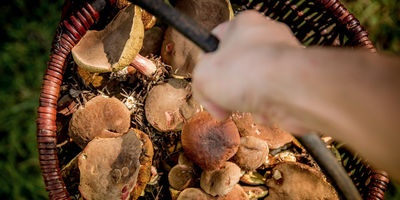 So far, no exhortations and prohibitions have been able to suppress these perversions of satiety. After all, the culture of consumption of natural resources depends entirely on the general level of culture and on our spirituality (or, more simply, on the consciousness of whose descendants we are and who we are on this fatherland). Of course, our ancestors also lacked culture, judging by the current sense of the word. Most of them are illiterate and superstitious, they, nevertheless, cherished "honor from a young age", had a clear idea of decency, conscience, duty, patriotism. They left us as a legacy not only their experience, worldly wisdom, rich language and folklore, but also an unspoiled, full-fledged living environment. In a word, unlike us, they did not rob their descendants in anything. So isn't it time for us to stop the feast during the plague and return to their holy covenants, to their morality and conscience, to learn from them reason in consuming natural gifts? So far, no exhortations and prohibitions have been able to suppress these perversions of satiety. After all, the culture of consumption of natural resources depends entirely on the general level of culture and on our spirituality (or, more simply, on the consciousness of whose descendants we are and who we are on this fatherland). Of course, our ancestors also lacked culture, judging by the current sense of the word. Most of them are illiterate and superstitious, they, nevertheless, cherished "honor from a young age", had a clear idea of decency, conscience, duty, patriotism. They left us as a legacy not only their experience, worldly wisdom, rich language and folklore, but also an unspoiled, full-fledged living environment. In a word, unlike us, they did not rob their descendants in anything. So isn't it time for us to stop the feast during the plague and return to their holy covenants, to their morality and conscience, to learn from them reason in consuming natural gifts?
Gathering berries, mushrooms, nuts, herbs and roots suitable for food has long been considered as if "pampering" in comparison with responsible grain-growing labor, but even these activities did not fall out of the sphere of peasant activity, enriching and diversifying the table of the worker, helping to endure the obligatory posts , and often helping out in unfortunate circumstances. "Green Kitchen" was always on the alert, armed with a powerful arsenal of culinary recipes and deeply "echeloned" with experience and skills to make supplies from natural gifts (salt, pickle, dry, ferment, soak, etc.). It is hard to even imagine how many of these recipes and skills are forgotten and lost today! Well nothing. There was, as they say, no happiness ... Something else remained, and it is not a sin to remember this.
B.P. Brusilov - Culinary savvy
Read now
All recipes
|
 For many centuries people have been studying the flora around them, and there is no end in sight to discoveries. The subjects of their search are the resources of food, energy, meeting the needs of health care, home improvement, the development of many types of industry, etc.
For many centuries people have been studying the flora around them, and there is no end in sight to discoveries. The subjects of their search are the resources of food, energy, meeting the needs of health care, home improvement, the development of many types of industry, etc. The flora is abundant and generous. Let us recall how in the war and post-war years of famine, millions of people were largely fed by the gifts of the forest. The elderly people of those unforgettable years were in their families in a special honor. Especially grandmothers. Because they had a lot of experience, their own, taken from a difficult youth and gleaned from their parents, how to make food out of nothing. It was accumulated by ancestors during the evil times of crop failures and crop failures, wars and devastation, irresponsible political experiments. Out of nowhere on the family table appeared dishes that had never been seen by young people, but quite edible and even delicious, aromatic, nutritious. In the winter months, in the entryway, in the attics, dried bunches of some herbs, garlands
The flora is abundant and generous. Let us recall how in the war and post-war years of famine, millions of people were largely fed by the gifts of the forest. The elderly people of those unforgettable years were in their families in a special honor. Especially grandmothers. Because they had a lot of experience, their own, taken from a difficult youth and gleaned from their parents, how to make food out of nothing. It was accumulated by ancestors during the evil times of crop failures and crop failures, wars and devastation, irresponsible political experiments. Out of nowhere on the family table appeared dishes that had never been seen by young people, but quite edible and even delicious, aromatic, nutritious. In the winter months, in the entryway, in the attics, dried bunches of some herbs, garlands  So far, no exhortations and prohibitions have been able to suppress these perversions of satiety. After all, the culture of consumption of natural resources depends entirely on the general level of culture and on our spirituality (or, more simply, on the consciousness of whose descendants we are and who we are on this fatherland). Of course, our ancestors also lacked culture, judging by the current sense of the word. Most of them are illiterate and superstitious, they, nevertheless, cherished "honor from a young age", had a clear idea of decency, conscience, duty, patriotism. They left us as a legacy not only their experience, worldly wisdom, rich language and folklore, but also an unspoiled, full-fledged living environment. In a word, unlike us, they did not rob their descendants in anything. So isn't it time for us to stop the feast during the plague and return to their holy covenants, to their morality and conscience, to learn from them reason in consuming natural gifts?
So far, no exhortations and prohibitions have been able to suppress these perversions of satiety. After all, the culture of consumption of natural resources depends entirely on the general level of culture and on our spirituality (or, more simply, on the consciousness of whose descendants we are and who we are on this fatherland). Of course, our ancestors also lacked culture, judging by the current sense of the word. Most of them are illiterate and superstitious, they, nevertheless, cherished "honor from a young age", had a clear idea of decency, conscience, duty, patriotism. They left us as a legacy not only their experience, worldly wisdom, rich language and folklore, but also an unspoiled, full-fledged living environment. In a word, unlike us, they did not rob their descendants in anything. So isn't it time for us to stop the feast during the plague and return to their holy covenants, to their morality and conscience, to learn from them reason in consuming natural gifts?


